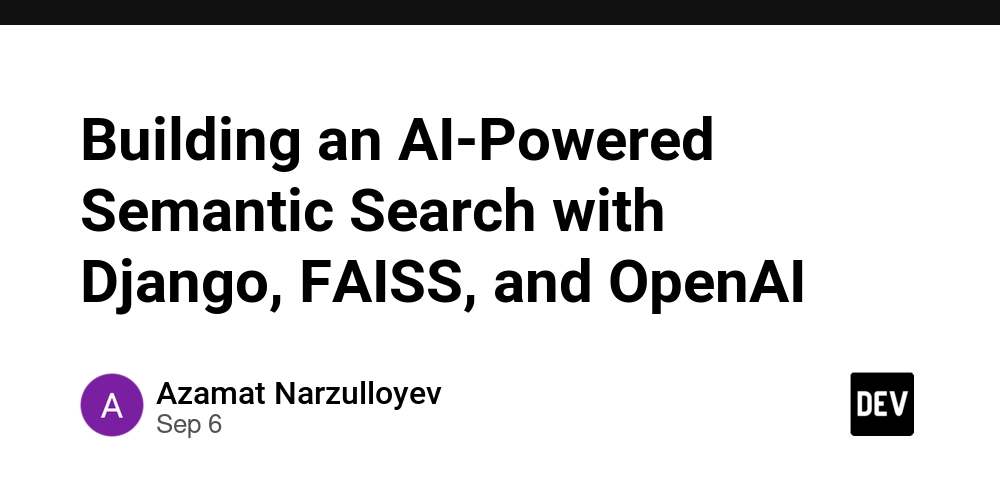Building an AI-Powered Semantic Search with Django, FAISS, and OpenAI
Semantic search is one of the most exciting areas in modern AI. Instead of matching keywords, semantic search understands meaning, which makes it incredibly useful for e-commerce, chatbots, and knowledge bases.
At Innosoft, we’ve implemented multiple projects where we combine Django (backend), FAISS (vector search), and OpenAI (embeddings) to create high-performance search systems.
In this tutorial, I’ll walk you through:
Why semantic search is better than keyword search
How FAISS works under the hood
How to integrate FAISS + OpenAI with Django
A minimal code example you can try yourself
By the end, you’ll have a working prototype of a semantic search system.
Why Semantic Search?
Traditional search engines rely on keyword matching:
Query: “cheap hotel in Tashkent”
Match: Only documents with exact keywords “cheap”, “hotel”, “Tashkent”.
Semantic search goes beyond keywords:
It understands that “affordable accommodation in Tashkent” has the same meaning.
This is possible using embeddings – vector representations of text.
Tech Stack
Backend: Django (REST API)
Vector Database: FAISS
Embeddings: OpenAI text-embedding-3-large
Language Support: English, Russian, Uzbek
Step 1 – Install Dependencies
pip install django djangorestframework openai faiss-cpu
Step 2 – Generate Embeddings with OpenAI
from openai import OpenAI
client = OpenAI(api_key=”YOUR_API_KEY”)
def get_embedding(text):
response = client.embeddings.create(
model=”text-embedding-3-large”,
input=text
)
return response.data[0].embedding
Step 3 – Store Vectors in FAISS
import faiss
import numpy as np
dimension = 3072 # size of text-embedding-3-large
index = faiss.IndexFlatL2(dimension)
documents = [
“Best hotels in Tashkent”,
“Affordable apartments in Samarkand”,
“Luxury resorts in Bukhara”
]
vectors = np.array([get_embedding(doc) for doc in documents])
index.add(vectors)
Step 4 – Semantic Search in Django API
from rest_framework.decorators import api_view
from rest_framework.response import Response
@api_view([“POST”])
def semantic_search(request):
query = request.data.get(“query”, “”)
query_vector = np.array([get_embedding(query)])
distances, indices = index.search(query_vector, k=3)
results = [documents[i] for i in indices[0]]
return Response({"results": results})
Example Query
Input:
{“query”: “cheap hotel in Tashkent”}
Output:
{
“results”: [
“Best hotels in Tashkent”,
“Luxury resorts in Bukhara”,
“Affordable apartments in Samarkand”
]
}
Real-World Use Cases
At Innosoft, we applied this approach to:
AI-powered chatbots in the banking sector
Product matching systems for e-commerce
Knowledge bases for enterprises
The result: faster, smarter, and more human-like search experiences.
Conclusion
Semantic search is no longer a luxury – it’s becoming the standard. With just Django + FAISS + OpenAI, you can build scalable, multilingual, and high-performance search systems.
🚀 At Innosoft, we continue pushing the boundaries of AI in real projects. If you’re interested in learning more, check out our work at:
🔗 https://innosoft.uz

